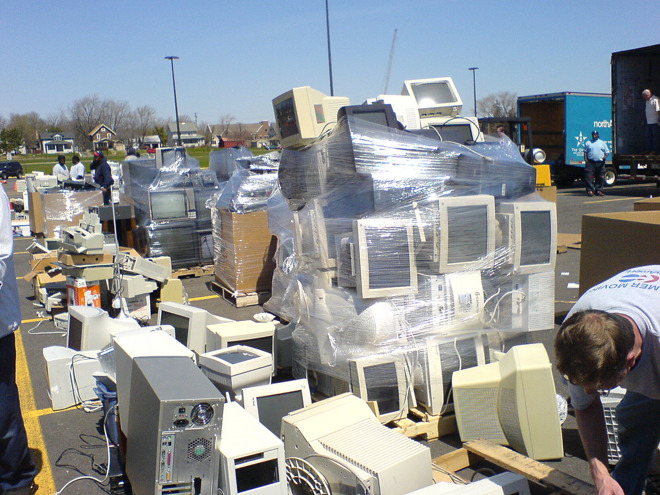Much of the 90 million pounds in e-waste Apple collected during 2015 was legally obligated, handled by outside firms, and probably not from Apple products, an analysis has concluded.

In 25 U.S. states, electronics manufacturers are required to do some level of e-waste recycling tied to marketshare or the weight of products sold, Vice said. The company in fact makes small reference to this in its latest Environmental Responsibility Report, where it mentions that it recycled "71 percent of the total weight of products we sold seven years earlier."
Since the report further notes that Apple is working with "over 160 recyclers around the world," the company is, most often, probably following a common practice of paying outside recyclers to claim a portion of their stream for legal purposes. In fact, phones and tablets frequently don't count towards state recycling quotas -- so Apple may regularly be paying firms to recover materials from TVs, servers, and monitors. Outdated tube TVs in particular are believed to account for the largest share of the U.S. e-waste industry's recycled weight.
The director of the National Center for Electronics Recycling, Jason Linnell, told Vice that Apple is considered to be solid participant in state recycling programs, in fact lining up programs and e-waste contractors in states where there is no legal mandate.
The report also tried to dispel the idea that Apple may be profiting by recovering precious metals, such as the 2,204 pounds of gold it had quoted for 2015. Even if Apple were to sell the gold itself, it would likely just offset some of the expense of recycling programs.
Some Apple products are of course collected through the company's own programs, run in conjunction with firms like Brightstar. Recently it introduced "Liam," a robot specially designed to recycle Apple devices.

